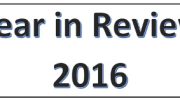By Jeffrey A. Roberts
CFOIC Executive Director
Colorado’s database of certified and decertified law enforcement officers will remain confidential after a judge Tuesday determined that the state Attorney General’s office did not abuse its discretion under the Colorado Criminal Justice Records Act (CCJRA) when it denied journalists’ requests for the records in 2019 and 2020.
Ruling against The Gazette, Gazette reporter Chris Osher and the Chicago-based Invisible Institute, Denver District Court Judge J. Eric Elliff said his “hands here legally are somewhat tied’ by a 2008 Colorado Supreme Court decision, Freedom Colorado Information v. El Paso County Sheriff’s Department, that limits the scope of his review in CCJRA cases.
“It doesn’t matter whether I think the information … is of critical importance to the state,” the judge said. “It doesn’t matter. And it doesn’t matter that I personally would balance things a little differently than the Attorney General’s office. All I can do is look at what the Attorney General’s office did and determine whether abuse of discretion occurred.”

Elliff explained that he could look only at whether the AG’s denials of the Peace Officer Standards and Training (POST) database were “manifestly arbitrary, unreasonable or unfair,” whether the agency misapplied the law and whether there is enough evidence to show that the AG weighed certain factors.
Those factors are laid out in a 2005 Colorado Supreme Court ruling, Harris v. Denver Post, which requires agencies to conduct a balancing test before concluding that disclosure of criminal justice records would be “contrary to the public interest.” The factors include an agency’s interest in pursuing ongoing investigations, the privacy interests of individuals, the public purpose to be served in allowing inspection and “any other pertinent consideration relevant to the circumstances” of a particular request.
Elliff’s ruling from the bench came at the end of a day-long hearing. He noted that Chief Deputy Attorney General Natalie Hanlon Leh, as the records custodian for the AG’s office and the POST board, testified that she considered the public interest but found it did not outweigh other factors such as the privacy and safety of law enforcement officers, the possible undermining of undercover investigations and the time and effort required to pull records from the database and redact fields of personal information like officers’ home addresses and cell phone numbers.
“I have to say, I don’t view this as a paragon of discretionary review, but discretionary review it was,” Elliff said. “I find that there is credible evidence in the record that the Attorney General … adequately considered the public interest and concluded, based on these other issues, that they would be unable to produce the records.”
Hanlon Leh said she doesn’t use the POST database on a regular basis but had been told many hours were needed to “manipulate” it to fill the records requests, something the AG isn’t required to do under the CCJRA. She called it “a very labor-intensive process made more difficult by having to redact personal information also contained in the records … I decided it was more than we could do.”
The judge said “it would have been great” to hear testimony from an information technology person in the AG’s office or an expert in the Benchmark Analytics software used by the POST board.
Hanlon Leh said the AG has been willing to provide records on individual officers if a requester already knows the officer’s name, as well as the names of decertified officers mentioned in the minutes of public POST board meetings. But Osher said the entire database — minus officers’ private information — would be much more useful for reporting on topics such as police department demographics, staffing levels, whether certain departments are experiencing an exodus of officers, officer compliance with training standards and whether officers with misconduct problems are able to get jobs with other departments.
As a Denver Post reporter, Osher wrote several stories on officers with blemished records who were hired by other police departments in Colorado. The articles prompted the passage of bipartisan legislation in 2016 requiring law enforcement agencies to review personnel records and internal affairs files from departments where an officer previously worked before hiring that officer.
Osher said he also tried to obtain the POST database in 2015 and 2016 “to do a comprehensive, statewide search.”
Journalist Sam Stecklow testified that the Invisible Institute has requested and obtained similar Peace Officer Standards and Training data from 23 states. He said fees prevented the nonprofit from obtaining data from two additional states.
Osher, The Gazette and the Invisible Institute are represented pro bono by Rachael Johnson, a Colorado-based attorney for the Reporters Committee for Freedom of the Press. The judge’s ruling, Johnson told the Colorado Freedom of Information Coalition, demonstrates that it’s far too easy under the CCJRA for law enforcement agencies to withhold records from the public.
All it takes is “a scintilla of evidence” that the records custodian conducted the required balancing test, Johnson said. “And that should not be the standard.”
“This is precisely the kind of case that we started the Local Legal Initiative to tackle,” said Katie Townsend, legal director for the Reporter’s Committee. “It’s been a long slog to full evidentiary hearings. Lots of lawyer time with a lot of investment. But the reason we took it on is that access to these records is so important.”
Townsend said the plaintiffs will discuss whether to appeal the ruling and still contend the POST database is subject to the Colorado Open Records Act, not the CCJRA, because POST doesn’t engage in activity directly related to the detection or investigation of crime.
In August, Elliff ruled that POST is a criminal justice agency. If he had instead determined POST is subject to CORA, disclosure of the database would have been governed by a 2017 CORA amendment that entitles requesters to copies of public records kept in “sortable” and “searchable” formats. Government entities under that provision can withhold certain fields of confidential information but not an entire database.
Follow the Colorado Freedom of Information Coalition on Twitter @CoFOIC. Like CFOIC’s Facebook page. Do you appreciate the information and resources provided by CFOIC? Please consider making a tax-deductible donation.




